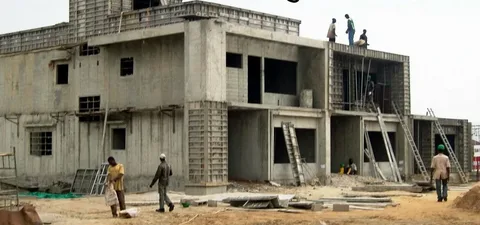In recent years, the construction industry in Pakistan has witnessed rapid growth, thanks to a combination of urbanization, increased government investments, and private sector developments. As the demand for residential, commercial, and infrastructure projects continues to rise, construction companies in Pakistan have become pivotal in shaping the country’s future. From skyscrapers in urban centers to vital road networks connecting remote regions, these companies are making a significant impact on the nation’s development.
Booming Infrastructure Development in Pakistan
Pakistan, a country with a population exceeding 240 million, has seen an increasing need for robust infrastructure to support its economic growth. Construction companies in Pakistan have been at the forefront of this transformation, providing much-needed services in building highways, bridges, airports, and residential complexes. The government’s focus on infrastructure development, along with initiatives like the China-Pakistan Economic Corridor (CPEC), has further propelled the demand for construction services, making it a crucial sector for the nation’s economic future.
Diverse Services Offered by Construction Companies
A key reason for the success of construction companies in Pakistan lies in their ability to offer a wide array of services tailored to both residential and commercial needs. Whether it is civil engineering, architecture, interior design, or project management, these companies have the expertise to cater to diverse needs. For residential projects, many companies specialize in constructing homes, apartment buildings, and villas, ensuring that they meet modern standards of comfort and sustainability. On the commercial side, the demand for office buildings, shopping malls, and factories has led construction firms to adopt advanced techniques and materials to create structures that are both functional and visually appealing.
Furthermore, the advent of green construction practices has gained momentum in Pakistan, with many construction companies incorporating eco-friendly materials and energy-efficient solutions in their projects. This is in line with global sustainability trends, and it helps in minimizing the environmental footprint while also reducing long-term operating costs for property owners.
Challenges Faced by Construction Companies in Pakistan
Despite the growth and potential in the construction sector, construction companies in Pakistan face several challenges that hinder their progress. One of the main hurdles is the availability of skilled labor. The shortage of trained professionals in fields such as construction management, architecture, and engineering has led to delays in project timelines and increased costs. To overcome this, many construction firms are now investing in training programs to develop the skills of their workforce and ensure higher standards of quality.
Another challenge is the regulatory environment. Complex and often inconsistent zoning laws, construction permits, and building codes can cause delays in the approval process. Construction companies in Pakistan often face difficulties navigating this red tape, which can lead to project setbacks and additional costs. However, as the government continues to streamline policies and reduce bureaucratic hurdles, these challenges are gradually being addressed, creating a more favorable environment for construction companies to thrive.
Technological Advancements in the Construction Sector
The construction industry in Pakistan has not only been expanding in terms of project volume but also in terms of technological innovation. The adoption of modern construction technologies such as Building Information Modeling (BIM), 3D printing, and drone surveys is slowly gaining traction. These technologies help construction companies reduce costs, improve the accuracy of project designs, and increase the speed of construction. Additionally, the integration of smart technologies into buildings—such as energy management systems and automated security features—has become increasingly common in commercial and high-end residential projects.
With the rapid evolution of technology, construction companies in Pakistan are now equipped to deliver higher-quality projects that meet international standards. This shift towards digitalization not only enhances the efficiency of the building process but also opens up opportunities for local construction firms to compete on the global stage.
The Future of Construction Companies in Pakistan
The future of construction companies in Pakistan looks promising, with substantial growth anticipated in both the residential and commercial sectors. As urbanization continues to expand, cities like Karachi, Lahore, Islamabad, and Rawalpindi are expected to witness significant construction projects aimed at accommodating the growing population. This includes large-scale housing schemes, mixed-use developments, and infrastructure projects that will improve connectivity and living standards.
Moreover, Pakistan’s real estate sector, which plays a vital role in the economy, is closely tied to the performance of construction companies. As more local and foreign investments flow into the country, the demand for modern, high-quality construction will remain high. With a strong focus on technological adoption, sustainability, and improving project management practices, construction companies in Pakistan are well-positioned to continue their role as key drivers of the nation’s development.
Conclusion
Construction companies in Pakistan have undeniably played a vital role in the development of the nation’s infrastructure and real estate sector. With an increasing demand for housing, commercial spaces, and infrastructure projects, these companies are essential to shaping the future of Pakistan. Despite facing challenges like labor shortages and regulatory hurdles, the adoption of technology and a growing focus on sustainable practices will help these firms navigate these obstacles. As the construction industry continues to evolve, it holds immense potential for driving economic growth and improving the quality of life for millions of Pakistanis.









